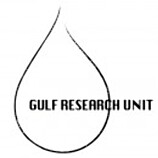
Archive: Gulf Research Blog
Blog articles from 2009 to 2012. The Gulf Research Unit is research programme based at the University of Oslo.
Kuwait: reforms still going strong?
Denne artikkelen er over ti år gammel og kan inneholde utdatert informasjon.
By: Jon Nordenson
Following three years of political turmoil, the parliament installed by the 2009 elections has proven to be a more stable one, with less focus on ”crisis” and more on passing laws. So far, a new labor law, a five-year development plan, and even a draft of a privatization bill have all passed through parliament. Confidence in the cooperation between parliament and government seems to be high, and HH the Emir has expressed his hope that the current parliament completes its four year term. If so, it would be the first time in years. Yet, as the MPs reconvene following the Eid al-Adha holiday, clouds may be looming on the horizon.
For one thing, there is the ever present threat of “grillings”, that is, interpellations directed at cabinet ministers by MPs. As I’ve written earlier, such motions may be followed by a vote of no confidence directed at the minister in question, and have notoriously lead to political crisis earlier. However, following the 2009 elections, this seems to have changed. Instead of resigning (or HH the Emir dissolving parliament), the cabinet has chosen to face both interpellations and any following votes on confidence, though making sure they had the backing of a majority of the MPs (though some MPs reportedly have claimed that the government “buys” the support of other MPs). By doing so, crisis have been averted, and the parliament and the government have been able to carry on.
These days, a number of interpellations are reportedly being prepared by various MPs, prompting the Kuwait Times to announce the “grilling season”. The question is then, naturally, whether or not the cabinet and the parliament will manage to avoid crisis this time around? An intriguing article in Kuwait Times suggests so; negotiations are going on behind the scene, so that the interpellations can be held without the government running to big a risk.
Another potential cloud on the horizon lies in the implementation of the reforms themselves. It has not yet been determined how the development plan, which is intended to turn Kuwait into a financial hub of the region and drastically increase the country’s non-oil income, is to be financed. The discussions concentrate on a development fund, as well as the establishment of several companies, whose shares are to be made available to ordinary Kuwaitis. Yet, no complete plan for funding has so far been presented to parliament by the government. The process has already been going on for months, and inevitably raises the question of whether the government and the parliament will be able to see the project through. Kuwait’s past record might suggest that the answer is no.
Then again, things do seem to be different with this parliament. Perhaps as a result of the constant “crisis” between 2006 and 2009, this parliament and this government seems determined to be more constructive and produce results. There seems to be a majority of the MPs (though with some changes from issue to issue) inclined to support government initiatives and to prevent crisis as a result of interpellations. Yet, if this new found pragmatism if to be successful, the projects of the government and the parliament must be realized.






